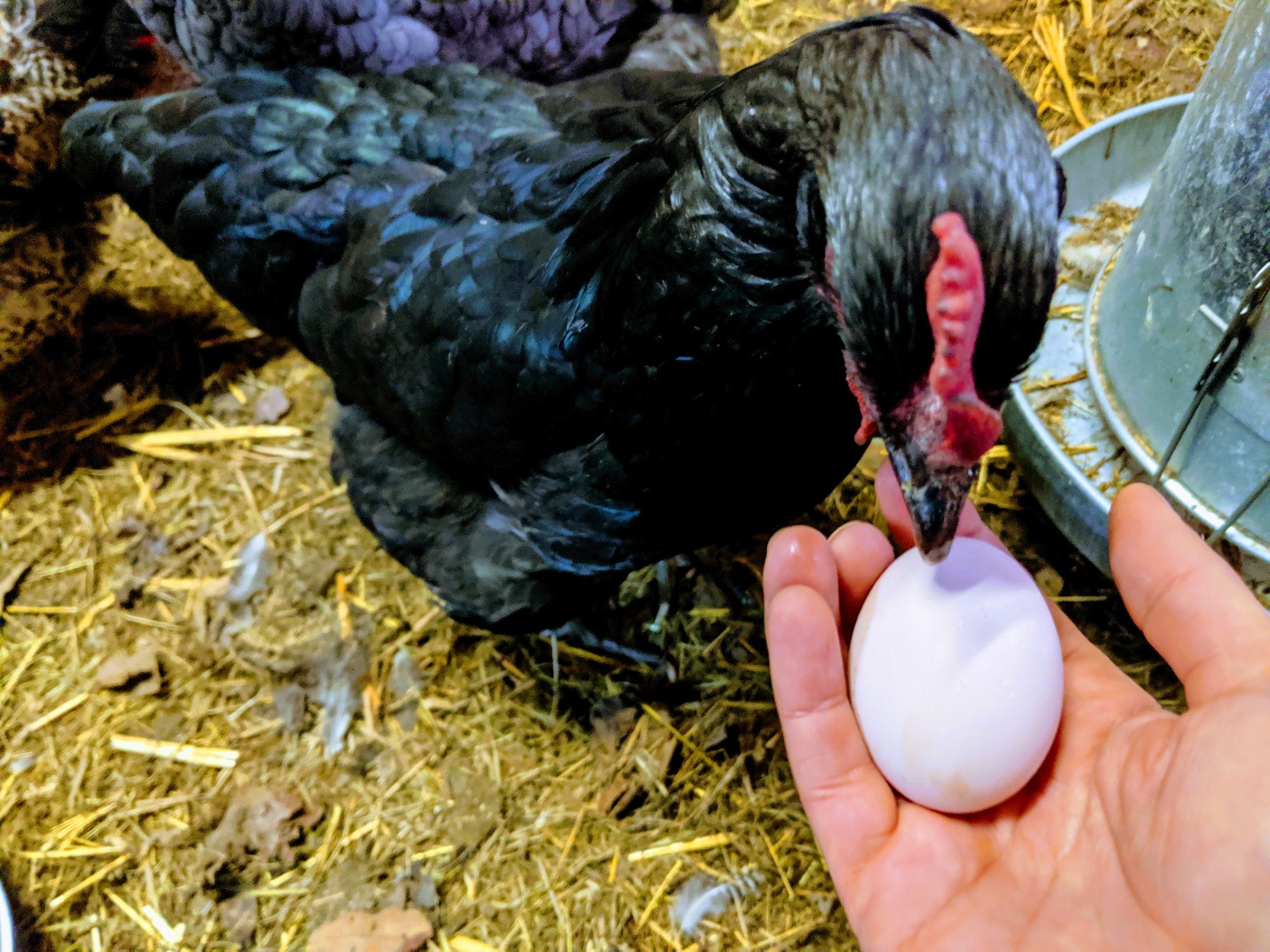A chicken ain't nothing but a bird
It was a dish for old Caesar, also King Henry the Third.

I am now a murderer. Of chickens.
I mention this as a kind of knowledge I can’t say I ever anticipated having. I’ve never killed anything bigger than a mouse. And certainly not anything I hand raised from its babyhood and knew as a distinct personality.

In the world of livestock, gender realities are harsh—males are expendable, and generally unwanted. Female animals have value. They produce eggs, milk, and replenish your stock with young animals. Male animals eat as much or more as the female animals, but have only one purpose. They tend to be more of a hassle to keep. Really, you only need one.

Of the 17 chickens and 4 guinea fowl I currently have, seven are roosters. Since this is not a commerical operation and we are not a farm—I prefer “not a farm” to “hobby farm”—these animals are really pets. They are all heritage breeds or mixes selected according to my fancy, not the high-producing hybrid layers or meat chickens of industrial production.
I am not restricted from keeping roosters, the way most urban backyard chicken keepers are. My roosters don’t even fight each other very much (not yet, anyhow). But I killed and processed #8, and four more will also end up on the chopping block over the course of the winter.
Why?
Let me tell you how I killed Barney M.
He had gotten sick and been in quarantine for a week. While his condition improved, he never fully shook off the sinus infection he had. Chickens are very social, so he was not enjoying the isolation ward. Returning him to the flock risked infecting the rest. And he had been away long enough that he might not have survived the brutal hazing process that chickens subject the statusless upon re-entry into the pecking order.
I had been talking a good game about harvesting my chickens, but now I actually had to do it.
After Murley and I had prepared everything (yes, I made my son help me slaughter an animal when he was back for a visit from university), I picked up Barney and cuddled him upside down. All the blood rushed to his head and he became very calm and dozy. Murley asked me if I wanted him to do the deed, but I felt strongly that Ned Stark’s credo applies to any animal you harvest: whoever passes the sentence, swings the blade. So I placed Barney on the block we fashioned from a section of tree trunk, and chopped his head off with a very sharp hatchet.
Then we stumbled, as novices, through all the steps of processing the carcass. Draining the blood, de-feathering, butchering. The more Barney started looking like a recognizable chicken carcass, the faster it went. I was surprised at how skimpy the meat was, until I realized my expectations were shaped by the commercial meat birds you buy in the store.

We didn’t intend to eat the meat ourselves because he had been a sick bird, but I had wanted to start making my own food for our dog Harriet, so he ended up in the crockpot with a lot of vegetables that were past their peak.

That night I could barely sleep. I felt horrible. Because whatever rationalization I applied, there was no escaping the reality of having ended a life.
Accepting my new status as a killer (of chickens) made more transparent the real cost of eating meat. Not just the taking of life, but the laborious process of raising the chicken before that, and preparing the meat for consumption afterwards.
I now understand why eating meat is a more occasional luxury for those who can’t just stroll to the grocery store, with its shelves upon shelves of commerically farmed and packaged cuts. I can buy a dozen chicken thighs for under $20, but it took months to get Barney to a weight where any meat was salvageable. And he only gaves us two thighs (he was a Barnevelder-Legbar cross, two laying breeds, so the breast was negligible).
What I learned:
Industrial production makes invisible the long stretches of time and labour it takes to produce edible food. And it insulates us from the killing behind every piece of meat.
What it changed for me:
It didn’t make me a vegetarian. But it did make me disinclined to waste food. And furthered my resolve to use the bodies of any animals I kill more efficiently.
Most small flock hobbyists give away their surplus roosters or have someone else process them. But I feel I owe my guys the respect of killing them myself rather than shielding myself from what it takes to get chicken on the plate.
